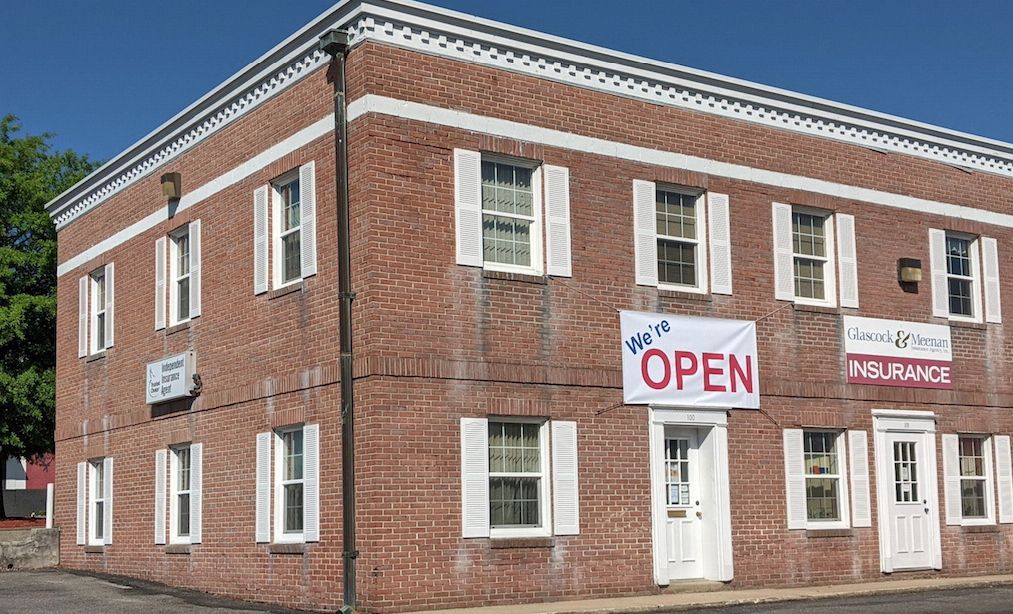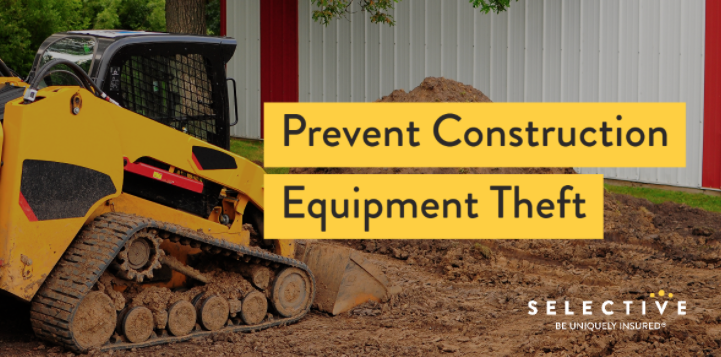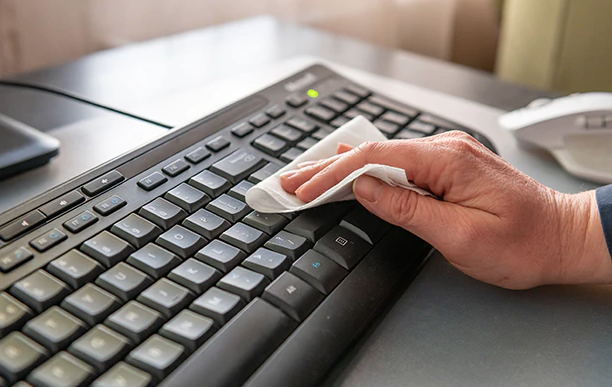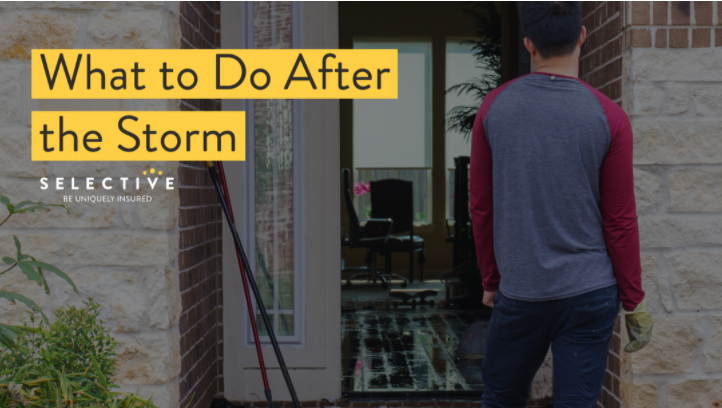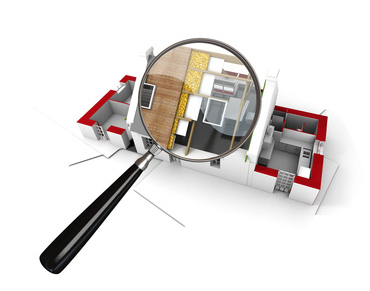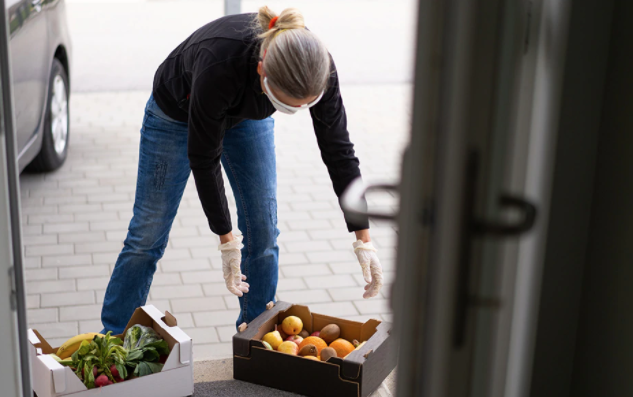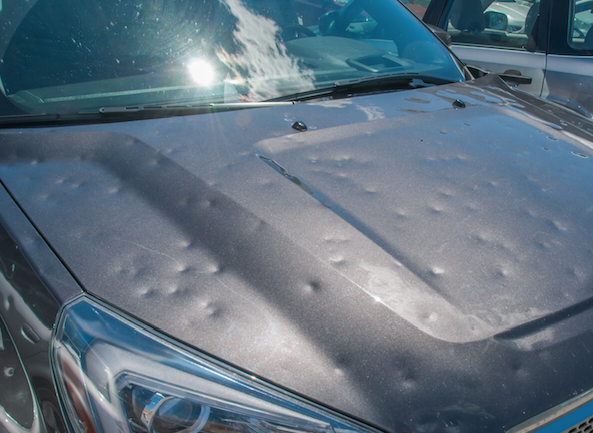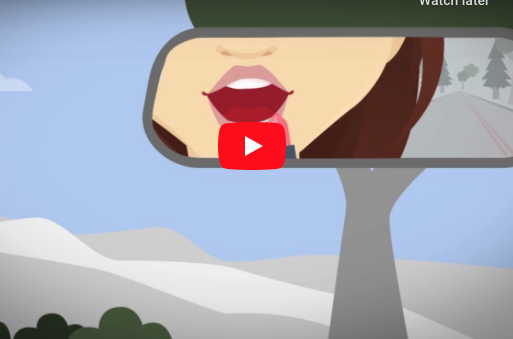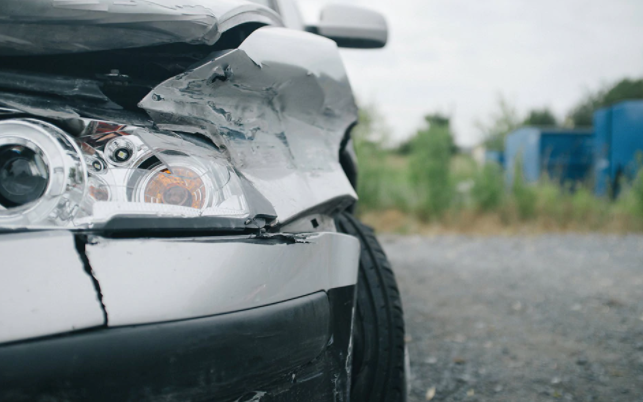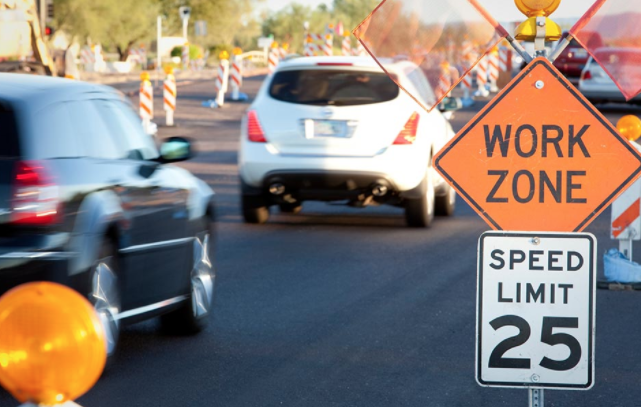Why You Need a Renters Insurance Policy

Many renters don’t realize how much they could benefit from having an insurance policy that can help protect their valuables in a life-changing event like a fire or theft. If you assume that damage to your property in your rental home will be covered by your landlord’s insurance policy, you’re making a mistake. The owners of rental properties typically purchase only enough insurance to repair or replace their structures. Insuring your personal property is up to you.
If you suffer a loss to your personal property or become the victim of a theft or fire, your landlord may be sympathetic but he or she may bear no responsibility for replacing your property.
Renters insurance offers the same general personal property coverage as homeowners insurance. It helps protect against losses from such mishaps as theft, fire, lightning, vandalism, windstorms and water damage from broken water pipes.
If your rental home should become uninhabitable, your renters policy typically will help address some of the costs for you to temporarily live elsewhere, up to your policy limits. This benefit usually includes the cost of meals, over and above your normal expenses. Read More
5 Questions to Ask Your Insurance Rep About Renters Insurance

While renters insurance offers broad protection for tenants, it’s important for consumers to choose the policy that best suits their individual needs.
A renters policy can cover your personal belongings and help cover legal costs in the event you are sued for accidental bodily injury or property damage of others. But not all policies are the same. Here are five questions to ask your insurance representative to help you make the right choice.
1. What’s Covered and What’s Not?
A renters policy generally covers your stuff against events like theft, lightning, fire, smoke, vandalism, explosions and windstorms.1 There’s also liability protection against claims and lawsuits alleging that you caused bodily injuries or property damage. There may be coverage for certain kinds of water damage, such as leaks from damaged pipes. Your insurance rep can tell you if the policy includes additional living expenses if you’re forced to move due to a covered loss.
A typical renters insurance policy does not generally provide coverage for damage from floods and earthquakes. Also, there will be limits on how much coverage is provided for your things. There could also be lower limits in the policy for different categories of your possessions. If you own expensive collectibles, such as jewelry or art, ask your insurance representative about buying additional coverage for these valuables.
How Does Renters Insurance Work?

If you rent an apartment or home, you might not be thinking about insurance. After all, you don’t own the building and your landlord may have insurance in case something happens. But if your living room is damaged in a fire, your landlord’s policy likely won’t cover your brand new laptop or your vintage vinyl record collection.
Renters insurance helps protect your personal property inside your apartment — your electronics, furniture and clothing — unlike a homeowners policy that generally covers the building as well as what’s inside. In insurance speak, protection for your personal property is also known as “contents coverage.” And, as a renter, if you invest in updating items such as built-in appliances or bathroom fixtures, you may be able to apply a percentage of your contents coverage to repair or replace what has been damaged.
Renters insurance can also protect your personal possessions from theft, fire, vandalism and other hazards, both at home and anywhere in the world. So if there’s a theft at the hotel you’re staying at while on vacation, your renters insurance may help you replace your stuff the same way it would if your things were stolen from your apartment.
Protecting You, Along with What’s Inside Your Apartment
It’s not just your possessions that renters insurance coverage can help protect. It can also help protect you. In case a claim is brought against you or you are sued by a third party, your renters personal liability coverage can help to cover the legal costs and related damages. Many renters policies provide a minimum of $100,000 of financial protection that may help if someone claims injuries or damages while in your apartment, or caused by your personal activities or those of your household members. Read More
How the Home Insurance Claim Process Works

Owning a home can mean dealing with the unexpected – from a tree falling on your roof to a pipe bursting in your bathroom. Because you likely can’t prevent all unwanted surprises, knowing what to expect if you have a homeowner’s claim can help give you some peace of mind.
While insurance carriers can handle claims in different ways, here are some basic steps in the process.
If Your Home Has Been Damaged:
- Get the OK to reenter your home. If your home has extensive damage, do not go back inside until cleared to do so by emergency personnel or local government officials, even if the damage is confined to one room.
- Have your info ready. Typically, when you report your claim, you will be asked to provide your name, contact info, policy info, type and date of loss, and a description of the loss and of any injuries. If you have a home inventory, you may want to have it handy. Generally, your claim will be assigned a claim number and a claim professional, also called an adjuster, who will work with you to adjust your claim.
- Take steps to mitigate further damage, such as buying tarps to cover holes in your roof. Be sure to save your receipts.
Beginning the Claim Process:
- Report your claim. Contact your insurance company as soon as possible. If you are a Travelers customer, you can report a claim anytime online or by calling 1.800.Claim33. The sooner you report it, the sooner your insurer may be able to help. Read more
Information You May Need for a Homeowners Insurance Quote

Getting a homeowners quote can only take a few minutes when you have all of your information at hand. Knowing the details of your house, including what kind of safety features you have installed, may help you qualify for money-saving discounts and help ensure that you choose the coverage that meets your needs.
There can be more questions involved in getting a homeowners quote than a car insurance quote, so it can be helpful to gather your paperwork and be ready to answer specific questions about your home in advance. Here’s a checklist to help you get started.
1. Who lives at your house? You may be asked for contact information about you and anyone else who lives at your house, how long you’ve lived there, your marital status, whether you run a business from the home and whether you own a dog or any pets.
2. What’s your insurance history? It’s good to be ready with details about your existing coverage, if your home is already covered by homeowners insurance. Do you have a mortgage on the home? Are there any prior insurance claims? How much would it cost you to rebuild your home? Read More
Is Your Home Insured to Its Replacement Cost?
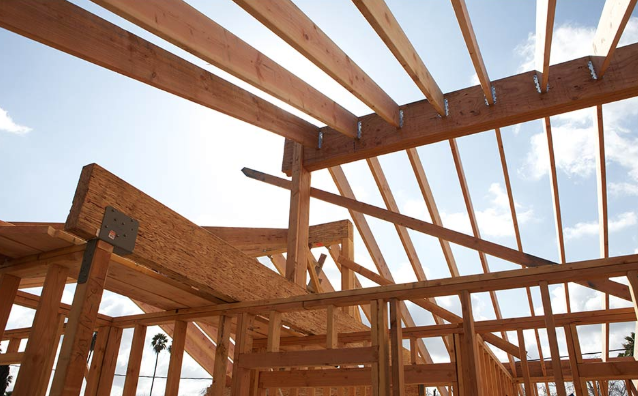
If you lost your home in a fire, how much would it cost to rebuild it? The answer may be different than you think. And if your home isn’t insured to its full replacement cost, your homeowners policy may not cover the full cost for you to rebuild it in the event of a covered loss.
Rebuilding costs could differ from what you paid for your home and be more than its current market value – what it would sell for today – especially in areas where the value of real estate has changed. A replacement estimate includes costs to rebuild your home component by component. Current costs for labor, materials and contractor fees may influence the replacement cost of your house.
Some key factors that affect the cost of rebuilding a home:
- Total living area (square footage).
- Style of home (e.g., ranch, contemporary, colonial).
- Construction type (e.g., frame or brick).
- Number of kitchens and bathrooms.
- Quality of custom materials.
- Garage type (e.g., attached, detached, built-in).
- Special features (e.g., fireplaces, porches, skylights).
- Additions or enhancements (e.g., finished basements or in-law apartments). Read more
Three of the Most Dangerous Boating Conditions
While spending time near water or on a boat can be an enjoyable way to spend a summer day, some dangerous conditions can exist if you are not properly equipped and prepared to deal with them. Three uncommon, and also avoidable, causes of serious injury include electrocution, being struck by a propeller, and carbon monoxide (CO) poisoning.

Dock Safety and Electricity
Many boat owners choose to keep their boats at a marina as opposed to mooring them. While marinas offer customers a number of amenities, such as water, cable and electricity to charge your boat’s battery or power lights and appliances, one of these perks can also lead to potential hazards. Did you know that stray electrical current from dock wiring or an electrical fault from a boat can energize the water creating an electrocution hazard? In this potentially dangerous situation, a person swimming nearby can become paralyzed by the electrical field and drown, referred to as Electrical Shock Drowning (ESD). Rescuers, when they enter the water, can suffer from the same paralyzing effects as the person they are trying to save. This type of hazard has been reported in fresh water marinas such as on lakes or rivers, but not salt water marinas. Presumably because salt water is a much better conductor of electricity and this can make it harder – but not impossible – for lethal voltage gradients to form.
To avoid this unpredictable and deadly hazard, do not swim or allow your passengers to swim from or near docks or boats where shore side electrical connections are provided. Other things that can be done to help minimize the risk of ESD include:
- Have all electrical work completed by marine electricians certified by the American Boat and Yacht Council (ABYC).
- When selecting a marina to tie up to long term, ask about their electrical inspection, testing and maintenance program, including procedures to minimize the risk of ESD.
- Promptly report to marina management evidence of chaffing cables, tripping of Ground Fault Circuit Interrupters (GFCI) or similar issues with the electrical system and dock pedestals. Read More
Should I File a Property Damage Claim? Three Questions to Help You Decide

Homeowners insurance can protect you from the unexpected. If your home is damaged or your belongings are stolen, it can help cover repairs or replacement, temporary housing and more. For example, if a tree falls through your roof, you’ll likely file a property damage claim under your homeowner’s policy. But what if you have an incident where you’re not sure whether to file a claim? You might not know what is covered under your policy or whether your policy will cover all of the damages. Here are three questions to help you determine what to do next.
Is My Loss Covered Under My Policy?
According to Jim Wucherpfennig, Travelers Vice President, Claim Property Product, understanding what caused the damages to your home or belongings and whether that damage is covered is key to determining whether to file a property insurance claim. Statistics compiled by the Insurance Information Institute (III) show that wind and hail damage is the most common homeowners claim.
Your insurance policy sets forth what is covered and to what extent, so read your policy documents carefully. Once you understand how the damages were caused, you can explore if it might be covered under the policy. Some common causes of damage to your home, belongings and property include wind, hail, theft, fire, vandalism and water (burst pipe). Typically, flood, normal wear and tear, and earth movement are not covered by a standard homeowners policy. Read More
6 Home Renovations that Can Affect Your Insurance

If you’re planning a home renovation, you may want to call your insurance agent first because this decision can impact your homeowners insurance. Some home renovations will change the amount of coverage you need, while others could even help you qualify for a discount. We cover six common scenarios that could affect your insurance, so you can plan ahead.
1. Building a New Addition
When you expand and improve your home, you could likely increase its replacement value. This is the cost to repair or rebuild your home. Some additions that could increase your replacement value include: adding a second-story bedroom, expanding the living room or building a new garage.
After building a new addition, or making updates or other improvements, you may need to increase your coverage because the value of your home, and the cost to rebuild it will likely have increased. Most insurance companies require your Coverage A or dwelling coverage limit be at least 80 percent of the replacement value of your home.
Your insurance agent can recalculate your home value to determine whether you’ll need more coverage because of the addition or improvement.
2. Building a Pool
If you’re looking to add a pool, you will want to contact your insurance agent to review coverage for changes to your property’s value, as well as any increase in risk. When people are swimming and running around the pool, there’s the chance for an accident. If someone gets hurt, they could try to hold you responsible for damages. This can apply even if the accident isn’t your fault. Read More
Saving Money on Your Homeowners Insurance

Save money on your homeowners insurance by “bundling” when you have more than one insurance policy with a single company. This is done primarily for the purposes of customer convenience and savings. With insurance companies offering an array of products to provide protection against the cost of losses to the things that customers value most, it can be difficult to sort out what coverage you need and from whom to purchase it. Here’s a closer look at the concept of bundling, why it may make sense for you and where to find guidance to help ensure your most valuable possessions are properly covered in case of theft or damage.
What is Bundling?
Bundling means you are buying two or more types of insurance policies such as home insurance and auto insurance from the same company. It can be an effective way to get insurance discounts, because insurers typically offer price savings when you buy multiple policies from them. Compared to purchasing policies from separate insurance companies, most people save money when they choose to bundle multiple policies under one insurer. Read More
